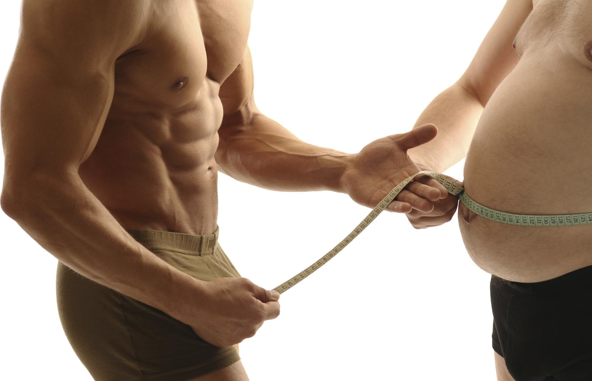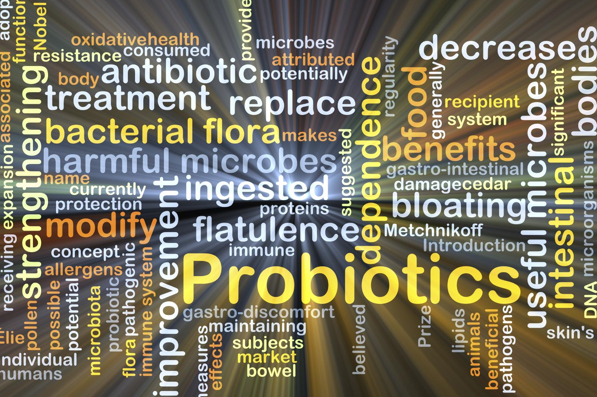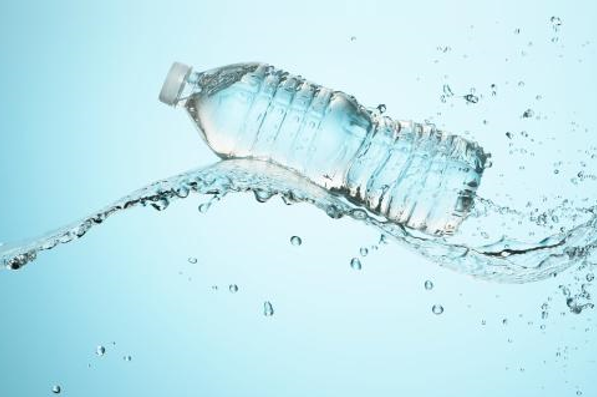James Haskell: The reasons why you’re bloated… and what to do about it!
You don’t need me to tell you how bad it feels when you’re bloated after a meal. You’re enjoying your food, minding your own business when BAM! A food baby grows in your belly, usually accompanied by strange sounding noises and abdominal discomfort. We’ve all been there, and know exactly how uncomfortable (and unattractive) it is.
It’s easy to ignore that bloated feeling you get after eating, especially in a society that doesn’t like to talk about their digestive problems. But bloating is a sign that something’s not right in your gut, and if you don’t take action it can lead to much more serious health complaints.

Don’t ignore what your body’s telling you! If you get bloated after eating, it’s time to do something about it. Here are 7 reasons why you’re bloated, and how to fix it so it never happens again.
#1 – You’ve got food intolerances
This is the biggest reason why people suffer from bloating after eating. It’s a direct result of your digestive system reacting to something it perceives as potentially harmful!
You might think you’re not intolerant to anything, but that’s very rarely the case. Everyone has foods that they are sensitive to in some degree. Unlike full blown allergies, food intolerances can go undetected for years as the symptoms can be hard to spot. But if you swell up like a balloon after eating a certain food, it’s a sure fire sign that it’s probably not right for you!
How do you know if you are intolerant to a particular food? Keep a food diary for a week and monitor how you feel after every meal. When the week’s up, go back through the diary and look at the times when you weren’t feeling so good after eating. Look at the meals you ate directly before this point, and see if there is a common offender.
Once you have established the foods that you think are causing you problems, cut them out for two weeks to see if your symptoms improve. If they do, you have found the culprits! If not, you may have to start the process again.
Common food intolerances include gluten, dairy, eggs, shellfish and soy. Some people are also sensitive to a group of foods called nightshades, which include peppers, tomatoes, potatoes and aubergines.
The good thing about food intolerances is that once you have found the problem, you can adjust your diet accordingly to fix it!
#2 – You don’t have enough ‘friendly’ bacteria
Bacteria aren’t all bad. In fact, some of them are essential to your overall health and wellbeing!
The ‘friendly’ bacteria in our gut, also known as probiotics, help us to break down and assimilate nutrients from the food we eat. Before modern times, we all got plenty of probiotics in our diet as we ate fermented vegetables such as sauerkraut and kimchi regularly. We also didn’t use herbicides and pesticides all over our food which kill all the good bacteria!
If you get bloated after a meal or suffer from any other digestive troubles, try consuming a daily probiotic to help top up your good bacteria. You can either do this by eating more ‘live’ foods such as probiotic yoghurt and fermented vegetables, or for convenience, take a probiotic supplement. Probiotics will help you absorb all the goodness from the food that you eat, whilst also making sure that the bloating and discomfort in your gut are a thing of the past!

#3 – You’re not producing enough stomach acid
Low stomach acid is a problem that affects people of all ages and walks of life. When our body fails to produce enough of it’s natural digestive juices to break down our meal, food particles pass partially undigested through the stomach and into the colon, which causes cramps, bloating and even constipation.
If you suspect you have low stomach acid, try taking a shot of apple cider vinegar before your meals. This helps to increase hydrochloric acid secretion and thus assists in the breakdown of food. Do this before every meal for a week and see if you notice the difference!
#4 – You’re not drinking enough
Water is the transporter for the digestive system. We need it to lubricate the waste matter as it moves through the colon. When we’re dehydrated, waste material can get ‘backed up’ which leads to bloating and constipation!
Aim to drink a minimum of 8 glasses of clean, fresh water each day. You’ll need even more if you’re training and getting a sweat on!
#5 – You’re drinking too much with meals
On the opposite side of the coin to point 4, drinking too much fluid with your meals can also cause digestive problems. Drinking with our meals dilutes our natural digestive juices, which makes it harder for us to break down food properl
If you think about it logically, it’s just not in our genetic make-up to eat and drink at the same time. Thousands of years ago, we would forage for nuts and berries and hunt for our meat. We would then go to the watering hole if we needed a drink. These would be two separate events, rather than the modern mealtimes that involve both food and beverages.
Instead of drinking with your food, aim to leave a 30 minute gap between both sides of mealtimes and your next drink. If you can’t bear the thought of your meal without a drink, have a small glass of pineapple juice. It contains the enzyme bromelain, which helps in the assimilation of protein.

#6 – You’re eating too much protein
Protein is the hardest to digest macronutrient. It’s the reason why many people complain of feeling bloated or lethargic after a protein rich meal. We know it’s tempting to pile protein onto our plate, especially if you’re trying to build muscle, but eating too much at a time can cause serious digestive problems!
Our body can only assimilate a maximum of 30 grams of protein at each meal, so any more just puts extra strain on your gut. Instead of eating large high protein meals, spread your protein intake into 4 – 5 smaller meals throughout the day to make it easier for your digestive system to break it all down.
#7 – You’re stressing too much
When our body faces a stressful situation, it produces a hormone called cortisol. This hormone severely interferes with our digestion, as it encourages blood flow away from the stomach and into the brain. The lack of blood flow to the stomach weakens our digestive power, making it harder to break down food. Stress is bad at any time of day, but is particularly problematic at meal times!
To avoid unnecessary stress when you’re eating, try to eat in a relaxed environment with friends and family instead of rushing down your meals on the go. Keep your phone in your pocket and don’t answer emails and texts at the dinner table! Relax, enjoy your food, and you can catch up with life when you’ve finished.
There are many reasons why people suffer from bloating, but follow the 7 tips above and you’ll never have to suffer a ‘food baby’ again!
If you would like to know more about Health, Nutrition and Fitness then please visit our website:- www.jameshaskell.com where we have a host of free material, content and videos to help you.
Please send us your questions and any comments you would like to make, via our social media channels. Plus if you feel informed by what you have read, please share the information using #JHHF #JHFitness #jHTraining #JHLeanGains #JHBodyBuilding Twitter – @jameshaskellhf Instagram @jameshaskellhf









